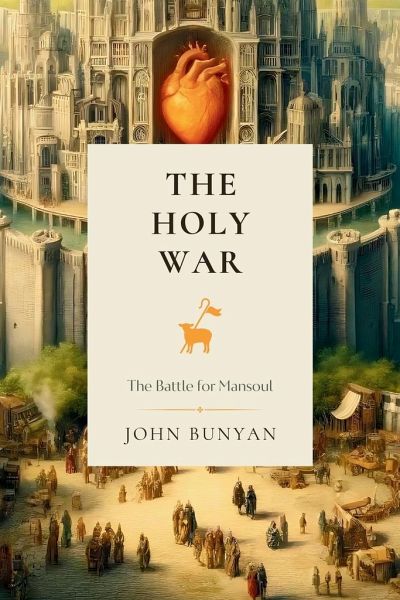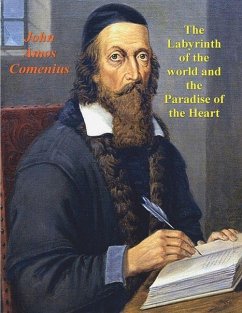
The Holy War
The Battle for Mansoul
Versandkostenfrei!
Sofort lieferbar
16,99 €
inkl. MwSt.

PAYBACK Punkte
8 °P sammeln!
While John Bunyan is most famously known for writing Pilgrim's Progress, his works of Christian literature extend well beyond just one novel. Indeed, Bunyan was a prolific writer and preacher, authoring over fifty books and tracts during his lifetime. Like Pilgrim's Progress, The Holy War is an allegorical novel which depicts fictional people and events to illustrate the Christian's spiritual journey. The Holy War is the story of "Mansoul", a perfect town built for the glory of its benevolent creator and leader, King Shaddai. After being deceived by the wicked ruler Diabolus, the town rejects ...
While John Bunyan is most famously known for writing Pilgrim's Progress, his works of Christian literature extend well beyond just one novel. Indeed, Bunyan was a prolific writer and preacher, authoring over fifty books and tracts during his lifetime. Like Pilgrim's Progress, The Holy War is an allegorical novel which depicts fictional people and events to illustrate the Christian's spiritual journey. The Holy War is the story of "Mansoul", a perfect town built for the glory of its benevolent creator and leader, King Shaddai. After being deceived by the wicked ruler Diabolus, the town rejects the rule of King Shaddai and falls deep into the mires of sin and despair. As battles rage against good and evil, the redemption of Mansoul is only possible through the victory of Shaddai's son, Prince Emmanuel. Bunyan's allegory is full of clever characters and captivating drama. This important Christian classic is both educational and entertaining, so it is a great book for leisure reading or Bible study.














